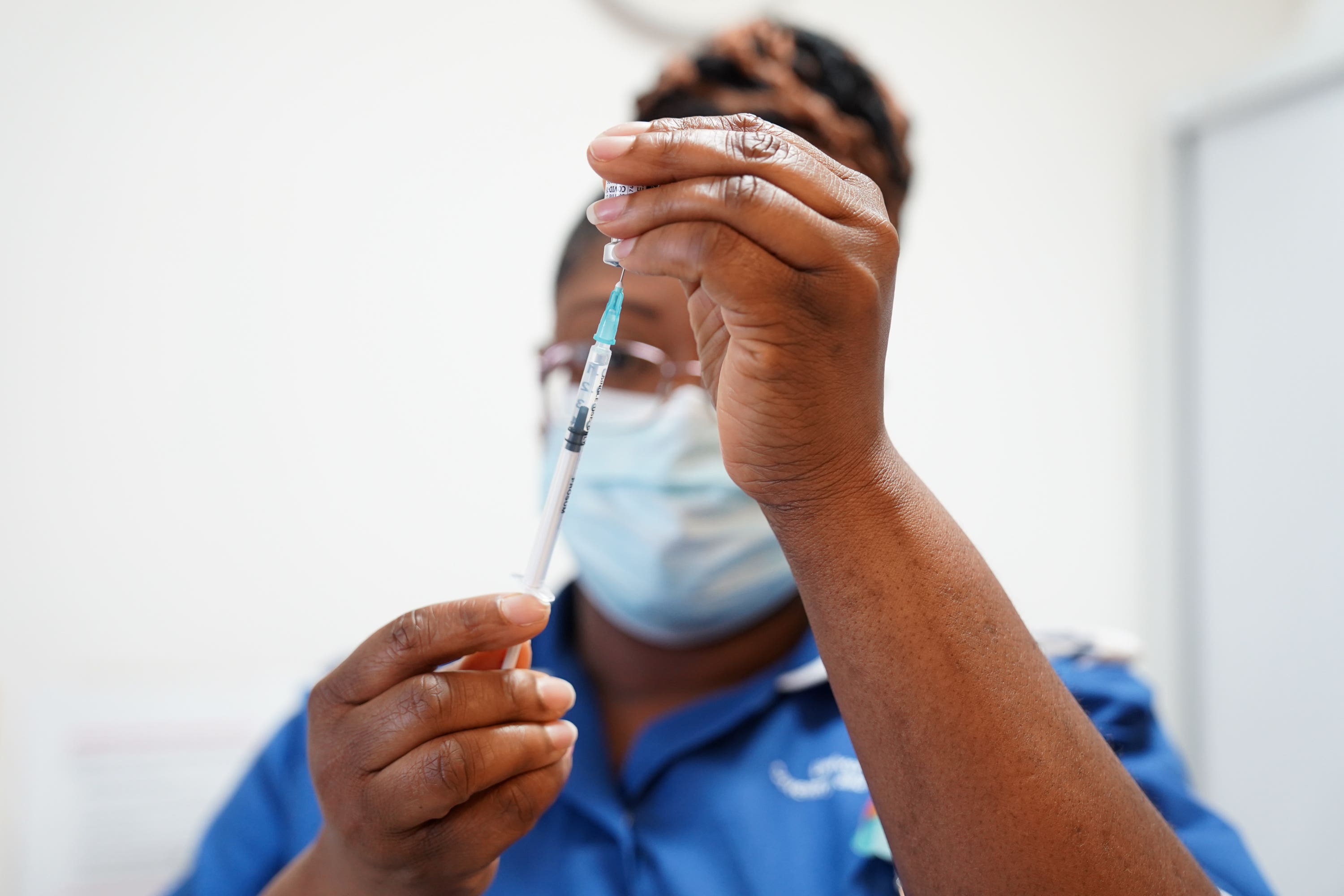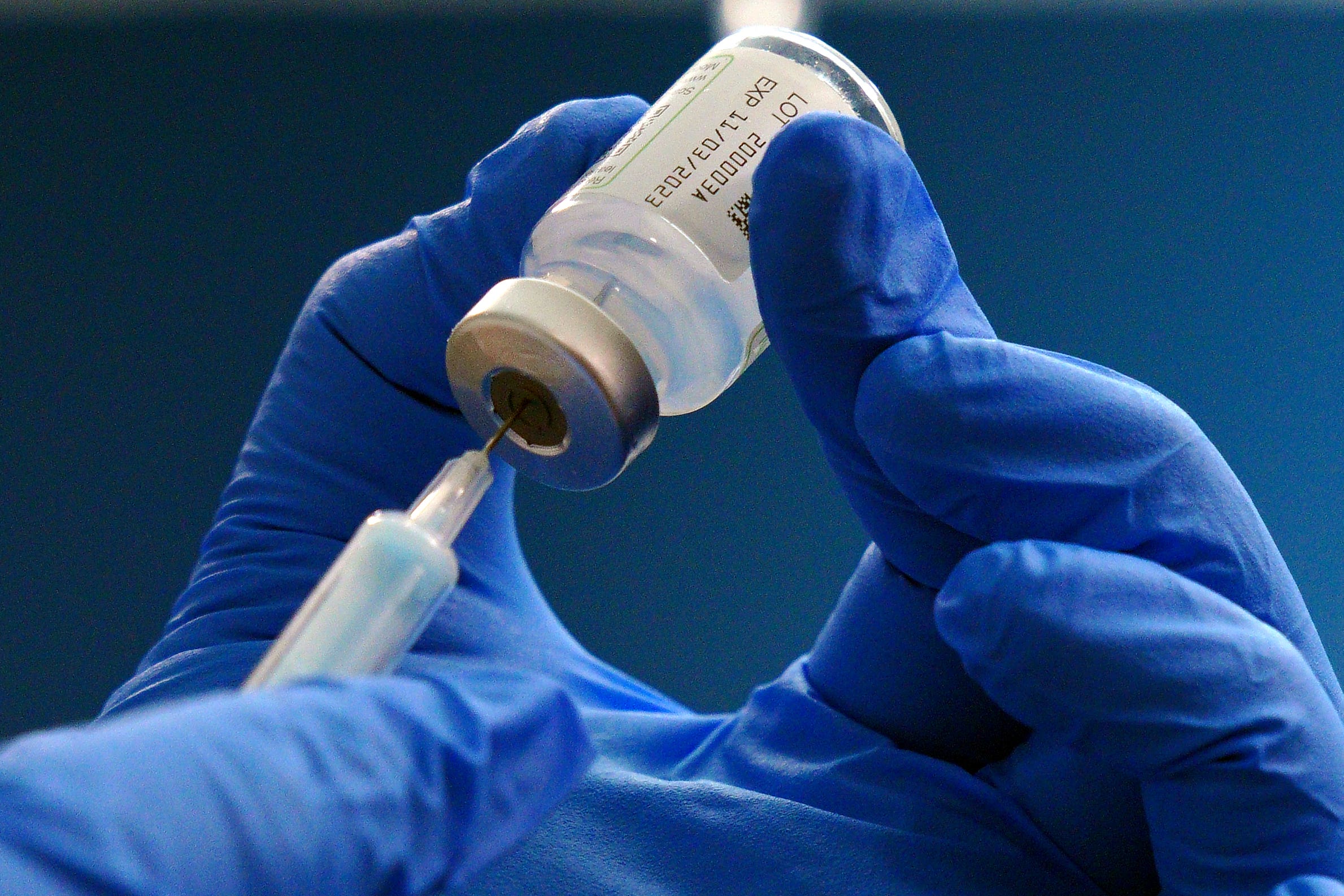Cancer vaccine breakthrough as tests show positive results on patients with tumours
The jab, known as mRNA-4359, is developed by Moderna

Your support helps us to tell the story
From reproductive rights to climate change to Big Tech, The Independent is on the ground when the story is developing. Whether it's investigating the financials of Elon Musk's pro-Trump PAC or producing our latest documentary, 'The A Word', which shines a light on the American women fighting for reproductive rights, we know how important it is to parse out the facts from the messaging.
At such a critical moment in US history, we need reporters on the ground. Your donation allows us to keep sending journalists to speak to both sides of the story.
The Independent is trusted by Americans across the entire political spectrum. And unlike many other quality news outlets, we choose not to lock Americans out of our reporting and analysis with paywalls. We believe quality journalism should be available to everyone, paid for by those who can afford it.
Your support makes all the difference.A cancer vaccine is one step closer to becoming a reality, according to the results of a trial.
The jab, known as mRNA-4359 and developed by Moderna, is currently aimed at people with advanced melanoma, lung cancer and other solid tumour cancers.
It is designed to prime the body to recognise and fight cancer cells has shown it could stimulate the immune system to help treat the disease more effectively, according to the results of an early trial.
For the first in-human study of the treatment, 19 patients with advanced solid tumours were given between one and nine doses of mRNA-4359.
Researchers found tumours did not grow and no new tumours appeared in eight of the 16 patients who were evaluated.
They also said the treatment was “well tolerated without serious side effects”.
Researchers described the results as “an important first step” in potentially developing a new treatment for people with advanced cancers.
It uses mRNA technology, similar to Covid-19 vaccines, which teaches the immune system how cancer cells differ to healthy cells and mobilises it to destroy them.

The results will be presented at the European Society of Medical Oncology conference in Barcelona by UK chief investigator Dr Debashis Sarker, a clinical reader in experimental oncology at King’s College London and a consultant in medical oncology at Guy’s & St Thomas’ NHS Foundation trust.
He said: “This study evaluating an mRNA cancer immunotherapy is an important first step in hopefully developing a new treatment for patients with advanced cancers.
“We have shown that the therapy is well tolerated without serious side effects and can stimulate the body’s immune system in a way that could help to treat cancer more effectively.
“However, as this study has only involved a small number of patients to date, it’s too early to say how effective this could be for people with advanced stage cancer.”
An 81-year-old man was the first person in the UK to receive the mRNA-4359 jab at Hammersmith Hospital in late October.
The patient – who wished to remain anonymous – has malignant melanoma skin cancer which is not responding to treatment.
The study is currently enrolling patients with specific cancers – namely melanoma and non-small-cell lung cancer – to have low doses of mRNA-4359 with pembrolizuma, also known as Keytruda.
Dr Sarkar described this as “a huge international effort across the UK, USA, Spain and Australia”.
Kyle Holen, senior vice president and health of development, therapeutics and oncology at Moderna, added: “We are encouraged by the phase 1 results of mRNA-4359, which demonstrate its potential to elicit strong antigen-specific T-cell responses while maintaining a manageable safety profile.
“This novel approach could be a key component in shifting the tumour microenvironment toward a more immune-permissive state, offering potential hope for patients with advanced solid tumours.”
The mRNA-4359 trial is one of a number of studies testing the effectiveness of jabs that are designed to fight cancer.
This includes the phase 3 trial of a personalised mRNA jab for melanoma – mRNA-4157 (V940) – which was given to a British patient earlier this year.
Scientists use a tumour sample, along with DNA sequencing and artificial intelligence, to create a jab specific to the patient’s tumour.
Elsewhere, a lung cancer patient became the first in the UK to have a new vaccine to help fight the disease in August.
The trial of a jab called BNT116, made by BioNTech, is taking place across 34 research sites in seven countries, with six located in England and Wales.
Join our commenting forum
Join thought-provoking conversations, follow other Independent readers and see their replies
Comments